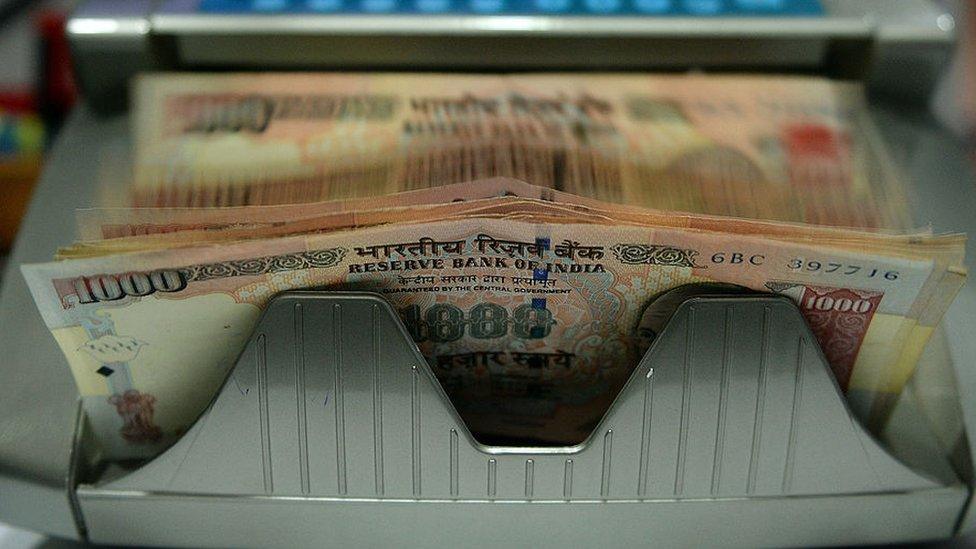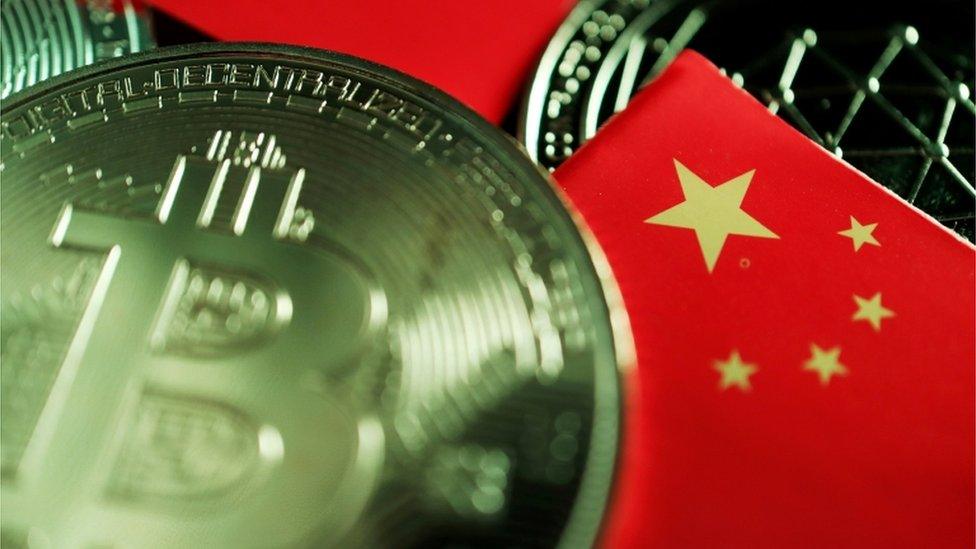India says it will launch digital rupee as soon as this year
- Published

India's finance minister has said the country will launch a digital version of the rupee as early as this year.
In her annual budget speech, Nirmala Sitharaman also outlined plans for a 30% tax on income from digital assets.
It would put profits from trading or transferring cryptocurrencies and non-fungible tokens in the country's highest tax band.
India is the latest major economy to announce an official virtual currency, as China trials the digital yuan.
"Introduction of a central bank digital currency will give a boost, a big boost to (the) digital economy," Ms Sitharaman said on Tuesday.
"Digital currency will also lead to a more efficient and cheaper currency management system," she added.
Ms Sitharaman also said the magnitude and frequency of digital asset transactions "have made it imperative to provide for a specific tax regime", where profits from transactions are taxed.
The tax would also apply to gifts of digital assets, with recipients being liable to pay the levy. Taxes for all other transactions would be deducted at source.
The announcement came as Ms Sitharaman unveiled the Indian federal government's annual budget.
It included ramping up spending on infrastructure and extended credit guarantees to struggling small businesses.
Asia's third largest economy has been hit hard by the pandemic with major job losses and rising inflation.
The announcement that India's central bank would introduce a digital currency comes against the backdrop of the country's demonetisation policy.
In 2016, Prime Minister Narendra Modi gave just four hours' notice before 500 rupee (£4.94) and 1,000 rupee banknotes were withdrawn from the financial system.
Meanwhile, China has been trialling the digital yuan ahead of this month's winter Olympics and has banned cryptocurrency trading and mining.
In the UK, The Bank of England and the Treasury are exploring a potential central bank digital currency.
India's plan to introduce a digital rupee was welcomed by cryptocurrency traders.
Sumit Gupta, co-founder and chief executive of India-based cryptocurrency exchange CoinDCX, told the BBC that the initiative "has given legitimacy to virtual digital assets".
Mr Gupta also said that he thinks taxing digital assets would be good for the market but believes the rate is too high.
"A tax rate of 30% is on par with that imposed on gains from speculative activities like lottery, gambling and other gaming activities. That proposed 30% might act as a dampener for greater adoption," he said.
In 2018, the Reserve Bank of India (RBI) banned the trading of cryptocurrencies.
The bank had previously issued several warnings about the "economic, financial, operational, legal, consumer protection and security-related risks" of virtual currencies such as Bitcoin.
However, the ban was overturned by the country's supreme court two years later.
In November, the government signalled that it was preparing to crack down on most cryptocurrencies in the country under a long-awaited bill.
It said at the time that the planned legislation was aimed "to create a facilitative framework for the creation of the official digital currency to be issued by the Reserve Bank of India".
Reporting by Annabelle Liang

You may also be interested in:
Bitcoin explained: How do cryptocurrencies work?
Related topics
- Published1 February 2022

- Published9 November 2021

- Published25 September 2020

- Published24 September 2021
